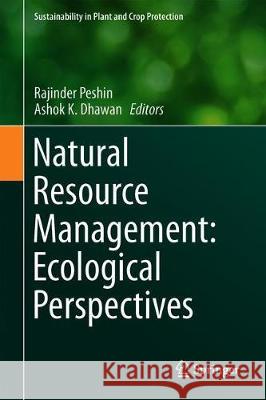Natural Resource Management: Ecological Perspectives » książka
topmenu
Natural Resource Management: Ecological Perspectives
ISBN-13: 9783319997674 / Angielski / Twarda / 2019 / 276 str.
Kategorie:
Kategorie BISAC:
Wydawca:
Springer
Seria wydawnicza:
Język:
Angielski
ISBN-13:
9783319997674
Rok wydania:
2019
Wydanie:
2019
Ilość stron:
276
Waga:
0.74 kg
Wymiary:
23.5 x 15.5
Oprawa:
Twarda
Wolumenów:
01











